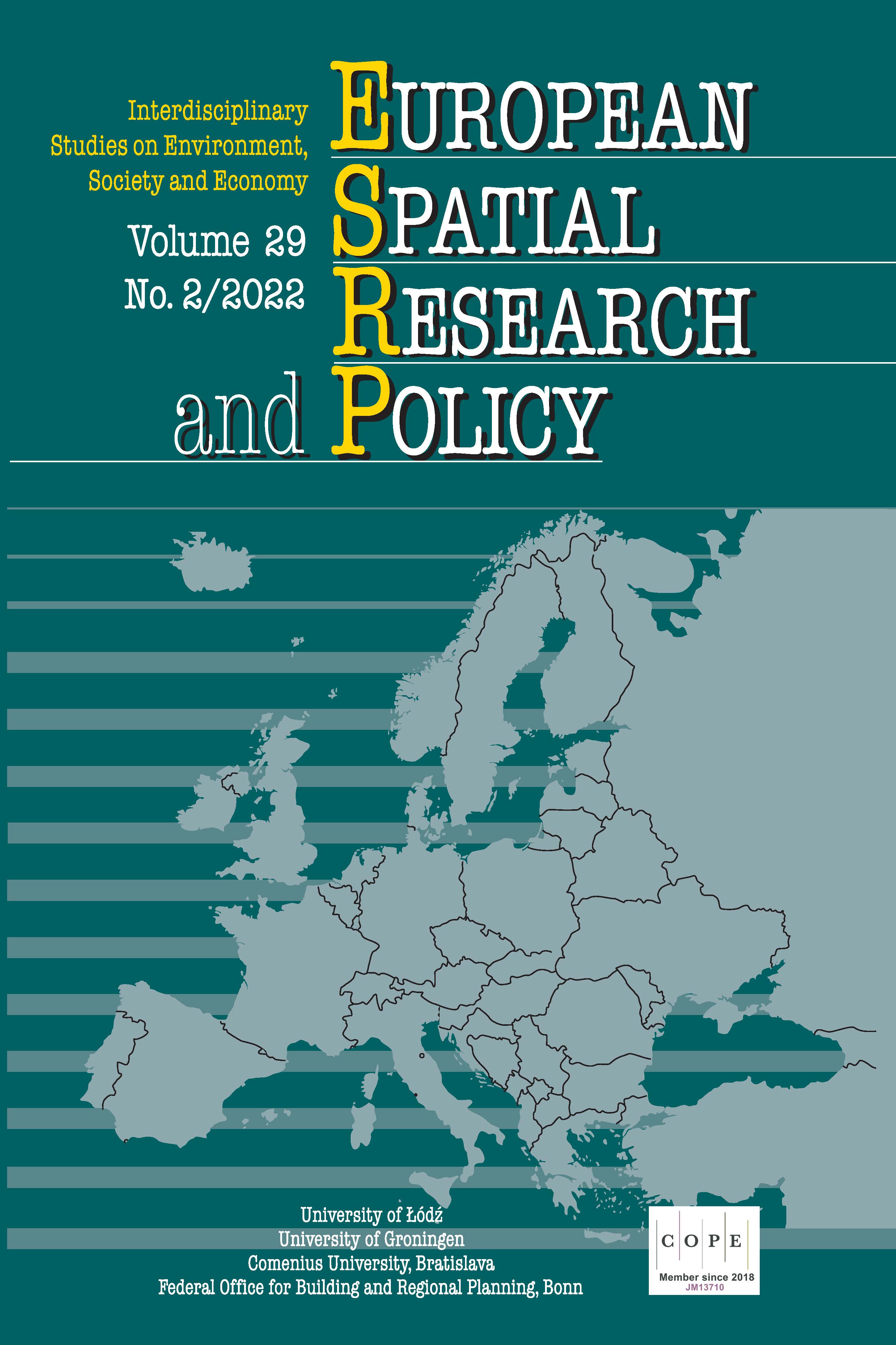Dialogue with the community in the planning process. How to use the participatory approach as a planning tool for the community’s benefit?
DOI:
https://doi.org/10.18778/1231-1952.29.2.14Downloads
References
BRYSON, J. (2004), ‘What to do when Stakeholders matter’, Public Management Review, 6 (1), pp. 21–53. https://doi.org/10.1080/14719030410001675722
Google Scholar
DOI: https://doi.org/10.1080/14719030410001675722
CARDI (2012), 10 guidelines for writing policy recommendations, Centre for Ageing Research and Development in Ireland.
Google Scholar
CROWE, S., CRESSWELL, K., ROBERTSON, A., HUBY, G., AVERY, A., and SHEIKH, A. (2011), ‘The case study approach’, BMC medical research methodology, 11 (1). https://doi.org/10.1186/1471-2288-11-100
Google Scholar
DOI: https://doi.org/10.1186/1471-2288-11-100
EDEN, G., SHARMA, S., ROY, D., JOSHI, A., NOCERA, J. A. and RANGASWAMY, N. (2019), ‘Field trip as method: a rapid fieldwork approach’, [in] Proceedings of the 10th Indian Conference on Human-Computer Interaction, New York: Association for Computing Machinery. https://doi.org/10.1145/3364183.3364188
Google Scholar
DOI: https://doi.org/10.1145/3364183.3364188
ERDIAW-KWASIE, M. O., and BASSON, M. (2018), ‘Reimaging socio-spatial planning: Towards a synthesis between sense of place and social sustainability approaches’, Planning Theory, 17 (4), pp. 514–532. https://doi.org/10.1177%2F1473095217736793
Google Scholar
DOI: https://doi.org/10.1177/1473095217736793
GUREL, E., and TAT, M. (2017), ‘SWOT Analysis: A Theoretical Review’, The Journal of International Social Research, 10 (51), pp. 994–1006. http://dx.doi.org/10.17719/jisr.2017.1832
Google Scholar
DOI: https://doi.org/10.17719/jisr.2017.1832
JACKSON, G. and MORPETH, N. (1999), ‘Local Agenda 21 and Community Participation in Tourism Policy and Planning: Future or Fallacy’, Current Issues in Tourism, 2 (1), pp. 1–38. https://doi.org/10.1080/13683509908667841
Google Scholar
DOI: https://doi.org/10.1080/13683509908667841
PRETO, I., MCCALL, M. K., FREITAS, M. and DOURADO, L. (2016), ‘Participatory Mapping of the Geography of Risk: Risk Perceptions of Children and Adolescents in Two Portuguese Towns’, Children, Youth and Environments, 26 (1), pp. 85–110. https://doi.org/10.7721/chilyoutenvi.26.1.0085
Google Scholar
DOI: https://doi.org/10.7721/chilyoutenvi.26.1.0085
WESTON, J. and WESTON, M. (2013), ‘Inclusion and Transparency in Planning Decision-Making: Planning Officer Reports to the Planning Committee’, Planning Practice & Research, 28 (2), 186–203. https://doi.org/10.1080/02697459.2012.704736
Google Scholar
DOI: https://doi.org/10.1080/02697459.2012.704736
JORGE, J. P., OLIVEIRA, V., SANTOS, L. L., VIANA, A. S. and MALHEIROS, C. (2022), ‘The Spatial Planning System in Portugal’, Theoretical Framework Report on European Spatial Planning of Tourism Destinations.
Google Scholar
KAIKA, M. (2017), ‘Don’t call me resilient again!’: the New Urban Agenda as immunology … or … what happens when communities refuse to be vaccinated with «smart cities» and indicators’, Environment and Urbanization, 29 (1), pp. 89–102. https://doi.org/10.1177/0956247816684763
Google Scholar
DOI: https://doi.org/10.1177/0956247816684763
KALLET, R. H. (2004), ‘How to Write the Methods Section of a Research Paper’, Respiratory Care, 49 (10), pp. 1229–1232.
Google Scholar
NANCY, J. L. (1991), ‘The inoperative community’, [in] CONNOR, P. (ed.), Theory and history of literature, Minneapolis: University of Minnesota Press, pp. 1–42.
Google Scholar
VAN CAUWENBERGH, N., CIURÓ, A. B., and AHLERS, R. (2018), ‘Participatory processes and support tools for planning in complex dynamic environments: a case study on web-GIS based participatory water resources planning in Almeria, Spain’, Ecology and Society, 23 (2). https://doi.org/10.5751/ES-09987-230202
Google Scholar
DOI: https://doi.org/10.5751/ES-09987-230202
Published
Versions
- 2024-01-09 (2)
- 2022-11-17 (1)
How to Cite
Issue
Section
License

This work is licensed under a Creative Commons Attribution-NonCommercial-NoDerivatives 4.0 International License.
Funding data
-
Erasmus+
Grant numbers 2019-1-PL01-KA203-064946














